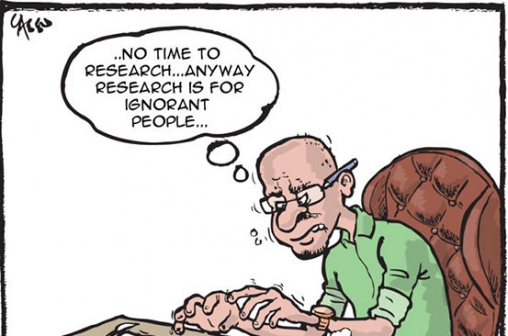×
The Standard e-Paper
Join Thousands Daily

NAIROBI: Writing and the position of being a writer sometimes, if not always, elevates you – the writer – to a certain level above your readers. They feed in what you say; most believe you and some will quote you. A number will be critical of what you say, which is perfectly in order.
This state of affairs should not, however, make you develop a big head. Indeed, it should humble you yet some writers’ attempt at ‘getting publicity’ leaves a bitter taste in the reader’s mouth.